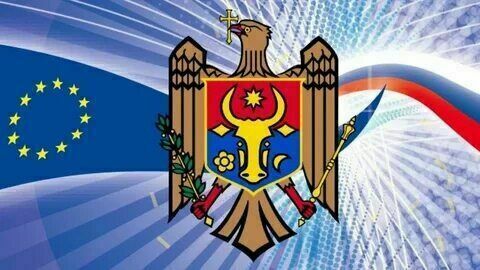Posted 3 февраля 2023, 11:19
Published 3 февраля 2023, 11:19
Modified 3 февраля 2023, 11:25
Updated 3 февраля 2023, 11:25

At the crossroads: where will the Moldovan pendulum swing – to the West or to Russia?
As you know, answering questions from the Rossiya 24 channel and RIA Novosti, Russian Foreign Minister Sergei Lavrov gave a forecast regarding a country capable of becoming the "next Ukraine". From his point of view, this is Moldova. According to the Russian Foreign Minister, Chisinau is pushing the West in this direction, and Moldovan President Maya Sandu is ready to implement such a scenario.
Political scientist Sergey Markedonov comments on this situation in his channel:
"Today, discussions about processes in the post-Soviet space are dominated by two approaches. As a rule, what is happening not only in Moldova, but also in Georgia, Armenia or Kazakhstan is considered, firstly, as a remake of the Cold War (West-Russia), and secondly, as a kind of variation of the Ukrainian algorithm. Meanwhile, each of these cases is unique with a certain generality of problems and challenges.
With the beginning of the Russian special military operation in Ukraine, the strategic importance of Moldova in the context of European security has grown significantly. The country, in fact, found itself on the line of the most powerful confrontation between Russia and the West after the end of the Cold War and the collapse of the USSR. Leading European, British and American politicians have repeatedly stressed that Chisinau is a reliable partner of the West. And almost his outpost.
But, as they say, not a single geopolitics. After the collapse of the USSR, Moldova was a multi-layered country. And from the point of view of different ideologies ("Moldavenism" was combined with pro—Romanian "unionism", left-wing views with liberal, pro-Russian approaches with pro-Western ones), and the changeability of power, and the separation of powers, when each "branch" led its own special party. In this regard, the situation of the last two years is sharply different from the entire previous period. After the victory of Maya Sandu in the presidential elections in November 2020, the homogenization of the Moldovan government took place. For the first time, probably, in Moldovan history, all the key branches of government (parliament, government, Constitutional Court), as well as law enforcement agencies were concentrated in the hands of one political team.
Unlike his predecessor Igor Dodon, Sandu is not a supporter of a diversified foreign policy. Even before the start of the SVO in Ukraine, she did not hide her strategic goals and priorities — early integration into the EU and strengthening ties with Brussels and Washington. In this regard, it is not possible to make references to a special military operation as a trigger for the "Westernization" of the Moldovan president. However, the dramatic events in Ukraine have strengthened her and her like-minded people that there are no alternatives to the West. And if earlier Sandu and her colleagues did not exploit the topic of Chisinau's accession to NATO too much, today this issue is actually included in the official agenda.
And yet, the homogenization of power does not mean the end of social diversity in Moldovan. According to Florent Parmentier, Secretary General of the French analytical center Cevipof, the November 2022 opinion polls record the level of support for the course of rapprochement with the European Union at 30%, whereas in the summer of 2021 it exceeded the figure of 50%. The country also experienced mass protest actions last year, which European observers tend to view as pro-Russian, although dissatisfaction with the current Moldovan government has internal sources (activists of Ilan Shor's party became the frontmen of the protests)..."